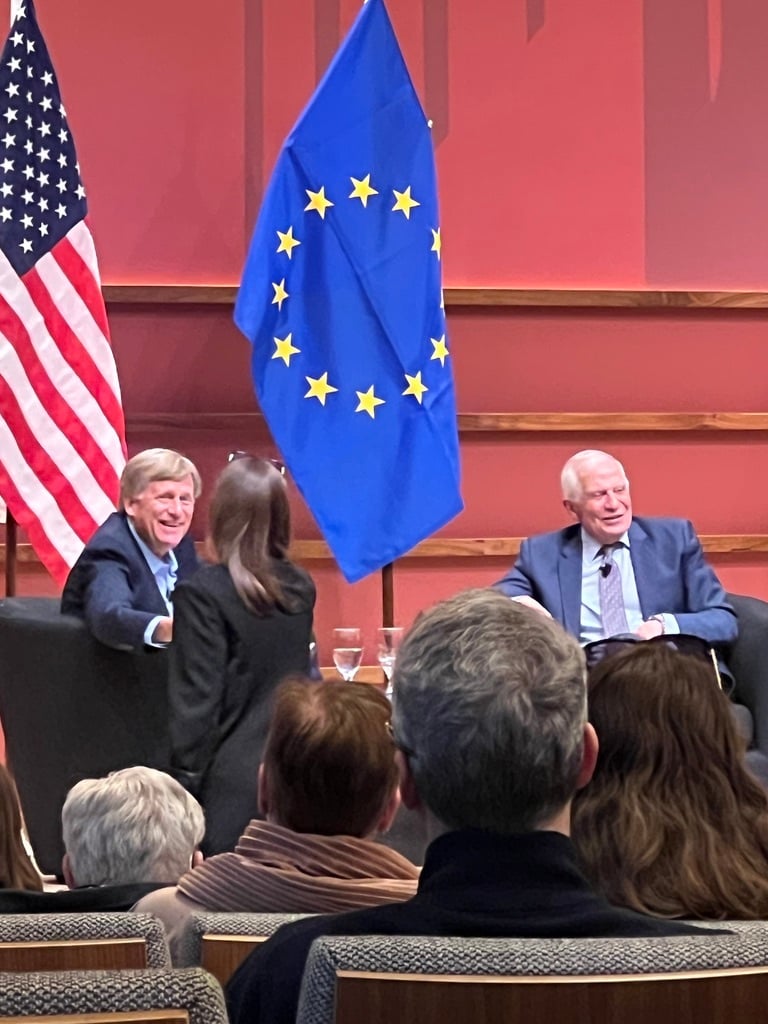European Union (EU) High Representative for Foreign Affairs and Security Policy Josep Borrell M.S. ’75 visited the Hoover Institution on Monday for an event hosted by the Freeman Spogli Institute for International Studies.
In a keynote speech followed by a conversation with the institute’s director and former ambassador to Russia, Michael McFaul, Borrell delved Europe’s crucial role and responsibilities in addressing ongoing war in Ukraine and Gaza, as well as geopolitical security and emerging technology more broadly.
Borrell emphasized the need for EU countries to collectively adapt to the changing geopolitical landscape and increase their strategic responsibility. He stressed the importance of European unity in the face of challenges posed by Russia’s aggression in Ukraine and the ongoing Israel-Gaza war, noting that the security landscape has “dramatically changed.”
“Europe has to learn to speak the language of power,” Borrell said, emphasizing the need for Europe to increase its military capacities while utilizing all available tools to face global challenges.
Regarding the Israel-Gaza war, Borrell called for a political process that would empower the Palestinian Authority and reach a solution for peace, describing the current state as “a stain on human consciousness.” He urged the international community to push for a ceasefire, secure the release of hostages, and ensure better access to humanitarian aid in the region.
“It is not a natural catastrophe what is happening in Gaza. It is not an earthquake, it is not a flood when you come and help people suffering the consequences. [It] is a manmade disaster, is a manmade catastrophe,” Borrell said.
Among the other global challenges Borrell called for Europe to address was the continent’s dependence on China for critical materials and technologies. He emphasized the importance of coordinating with the US to counter China’s growing influence in the global economic and political sphere.
“More coordination in front of China should be one of the most important things that the Europeans and the Americans should do in order to balance the challenges of this world,” Borrell said.
More broadly, Borrell spoke to the importance of coordination between the US and EU to work globally to protect “political freedom, economic prosperity, and social cohesion.”
Borrell acknowledged that the United States is a global leader in emerging technologies, particularly artificial intelligence, and stressed the importance of cooperation on trade and technological innovation. He expressed concern that regulatory hurdles may be hindering the EU’s ability to catch up with the U.S. in the technology sector and emphasized the significance of transatlantic collaboration in shaping the future of technology.
“I am happy to know that we are partners in building a responsible and human-centric technological innovation,” Borrell said.
The importance of partnership across countries was a through line in Borrell’s speech, as he concluded with a reminder of the interconnectedness of global security and social well-being. “You cannot be secure at home if your neighbor is not eating dinner.”
